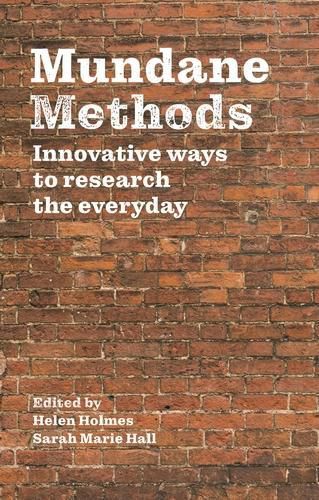Readings Newsletter
Become a Readings Member to make your shopping experience even easier.
Sign in or sign up for free!
You’re not far away from qualifying for FREE standard shipping within Australia
You’ve qualified for FREE standard shipping within Australia
The cart is loading…






Mundane Methods is an innovative and original collection which will make a distinctive methodological and empirical contribution to research on the everyday. Bringing together a range of interdisciplinary approaches it provides a practical, hands-on approach for scholars interested in studying the mundane and exploring its potential. Divided into three key themes this volume explores methods for studying: materials and memories, emotions and senses, and mobilities and motion; with encounters, relationships, practices, spaces, temporalities and imaginaries cross-cutting throughout. In doing so, it draws on the work of a range of established and up-and-coming scholars researching the everyday, including human geographers, sociologists, anthropologists, urban planners, cartographers, and fashion historians. With empirical examples, practical tips, ethical considerations, and exercises. – .
$9.00 standard shipping within Australia
FREE standard shipping within Australia for orders over $100.00
Express & International shipping calculated at checkout
Mundane Methods is an innovative and original collection which will make a distinctive methodological and empirical contribution to research on the everyday. Bringing together a range of interdisciplinary approaches it provides a practical, hands-on approach for scholars interested in studying the mundane and exploring its potential. Divided into three key themes this volume explores methods for studying: materials and memories, emotions and senses, and mobilities and motion; with encounters, relationships, practices, spaces, temporalities and imaginaries cross-cutting throughout. In doing so, it draws on the work of a range of established and up-and-coming scholars researching the everyday, including human geographers, sociologists, anthropologists, urban planners, cartographers, and fashion historians. With empirical examples, practical tips, ethical considerations, and exercises. – .